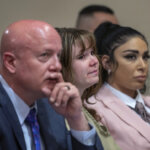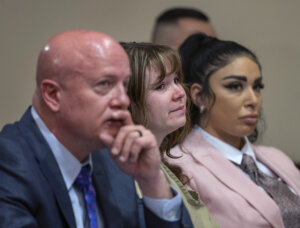
Advocates overcame major hurdles to win same-sex marriage rights in New York last month, but next up is the hard part: planning a wedding in less than a month and navigating the legalese afterward.
Local leaders are marketing Long Island as the go-to spot for gay and lesbian weddings this summer, offering a dizzying amount of planning options for same-sex couples eager to tie the knot—including a mass marriage ceremony later this month. Meanwhile, matrimonial experts are cautioning that there are still a host of kinks that need to be ironed out in the new law that soon-to-be newlyweds should consult an attorney about.
“With our beautiful beaches on both shores and top-notch catering facilities, Long Island will be the gay wedding destination for same-sex couples,” said David Kilmnick, CEO of the Bay Shore-based Long Island GLBT Services Network, who launched longislandgayweddings.org as a same-sex wedding planning guide.
Kilmnick is also organizing a free mass wedding at Carlyle on the Green in Bethpage State Park on Tuesday, July 26, the first day gay and lesbian couples will legally be able to marry. The law goes into effect on a Sunday, when government offices are closed, forcing couples to wait 24 hours after applying for a marriage license the following Monday.
But the waiting period may be the smallest of hoops married same-sex couples will have to jump through. Experts say the lack of nationwide marriage equality laws means rights won under state law are limited.
“Same-sex couples still, from a tax standpoint, are going to be stuck filing as individuals,” said Paul Hyl, an estate and elder law attorney who is a senior associate at Melville-based Genser, Dubow, Genser & Cona, LLP.
That’s because the IRS still does not recognize same-sex marriage, which is but one of a laundry list of discrepancies between the state and federal law now. While couples will now have a say in their spouses medical decisions under state law, federal laws governing inheritance, pensions and debt collection still don’t offer gay couples the same protections as straight couples.
In between calls while his phone has been ringing off the hook with clients seeking legal advice on the new law, Hyl noted that all couples—gay or straight—should take into consideration the same things before walking down the aisle: love, commitment, financial impact, etc.
“That piece of paper and those titles mean different things to different people,” he said.
To help answer some of those questions, the Long Island GLBT Services Network is hosting a program titled “Preparing for Marriage: Next Steps and What You Need to Know” at 6:30 p.m. Wednesday at the community center, 34 Park Ave., Bay Shore.
Despite the lingering inequities, some pointed to the economic stimulus that will likely be felt as a result of the law.
“There’s $283 million of new wedding business in New York State, 66,000 potential new weddings,” said Rep. Steve Israel (D-Dix Hills). “So the passage of marriage equality was not only the right thing to do it was also the smart economic thing to do.”

























